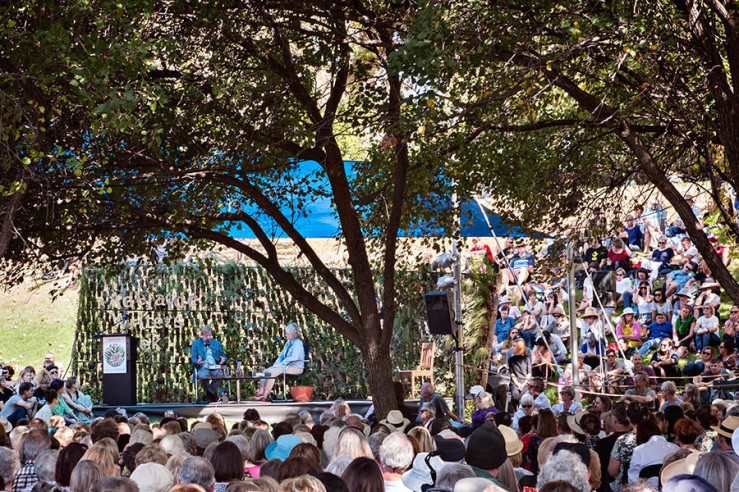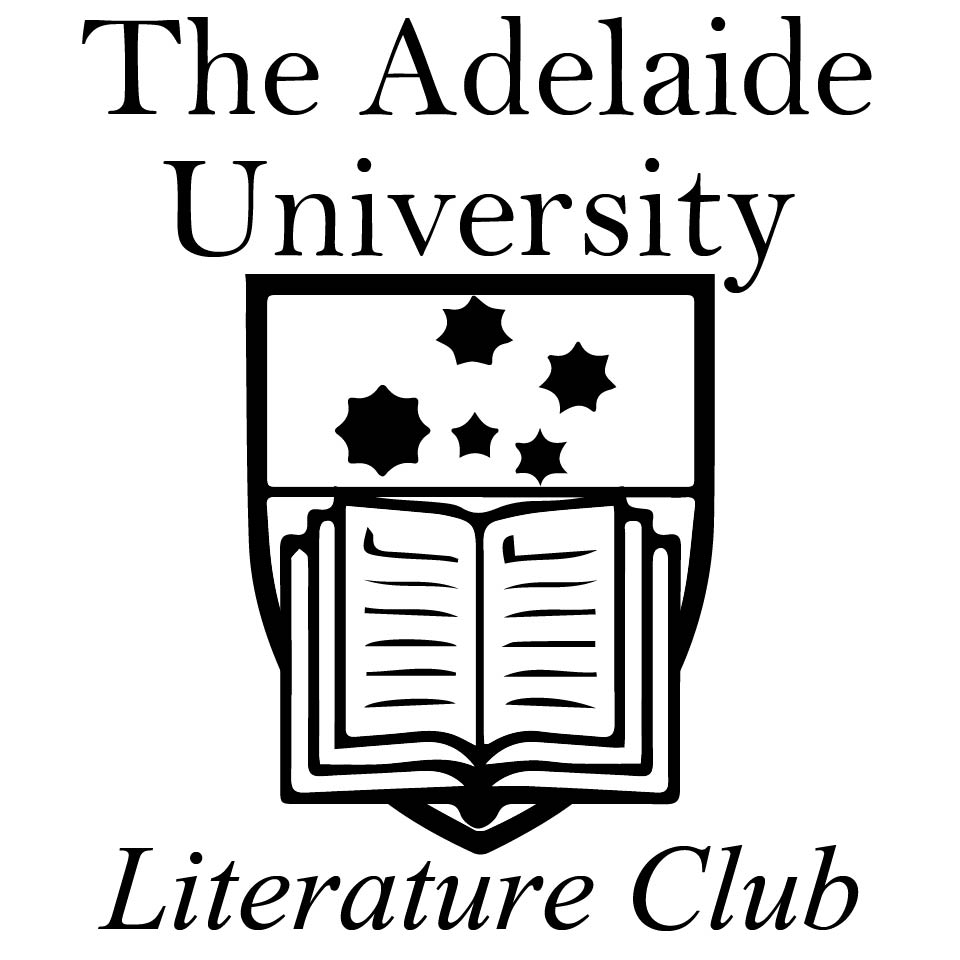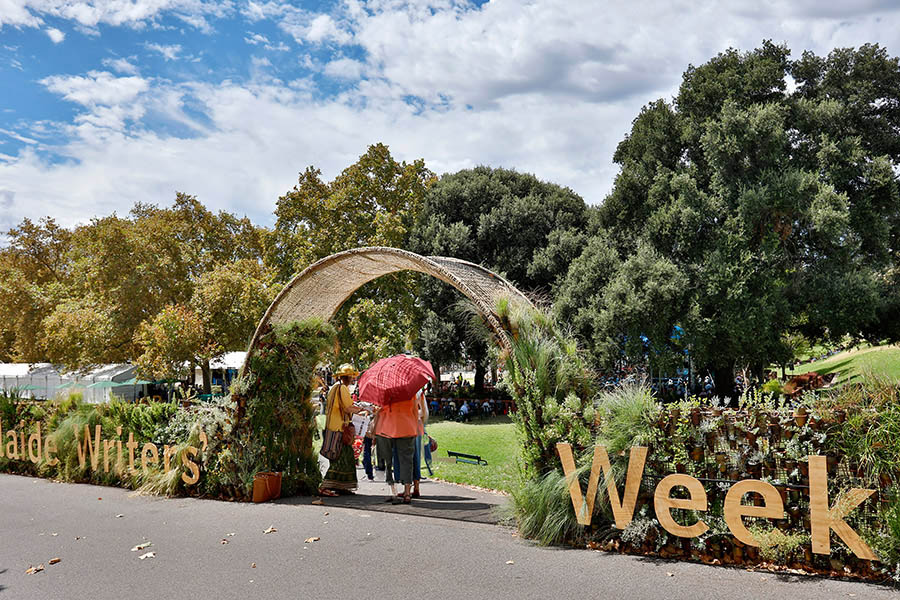Adelaide Writers’ Week is one of my favourite times of the year, hearing local and international authors talk under the shade of the trees in the Pioneer Women’s Memorial Garden is entertaining, thought-provoking and a good distraction, especially in the first week of uni.
I began attending Writers’ Week as a hopeful writer, hoping to gain insight into a world that can often seem mysterious to those not entrenched in it. There is much to be taken from the event in those regards, but the festival’s main audience are readers, who come in droves to listen, engage with and discover new and loved authors. One of the major benefits of this free event is happening across new authors simply through settling in to wait for your chosen session. It is often those sessions you listen to while waiting for the next session that make you want to go into the book tent and purchase an author’s book.
This year’s festival focused on change; personal, global, natural and man-made. A theme like change provides a diverse range of topics from novelists, biographers, scientists and professors. From the genteel voice of novelist Sarah Winman talking about her latest novel ten years in the making, to Kathy Jetñil-Kijiner’s breath-taking reading of her poem about the urgency of the climate situation in the Marshall Islands, Tell Them, to Manal al-Sharif and Amal Awad’s discussion on modern Arab women, the talks are disparate from one another yet equally engaging. This diversity is greatly enabled by the accessibility of the event, both in terms of its free entry and its dedication to providing Auslan interpreters and wheelchair space, and encourages readers to read beyond their own realms of experience.

As a writer, the opportunity to gain insight into an author’s process is invaluable. The focus on change for the week brought up questions of memory and the reliability of narrators in a number of sessions. Catherine Chidgey and Rachel Khong, in The Memory Game, discussed the unreliability of memory and its effect on narratives that deal with telling a person’s story over time. Rather than ignore the unreliability of a narrator or protagonist’s memory, Chidgey and Khong saw the potential variations in how different characters would remember and construct events as an opportunity to add complexity and truth to their narratives.
In Invented Histories, Catherine McKinnon and Jane Rawson focused on a different kind of narrative truth, discussing how to create believable historical narratives. While both agreed on the importance of research, they stressed that creating the sense of the place and time you are writing about is more important than getting every detail factually correct.

There is always something to take away from a session as a writer, whether it’s slightly disheartening, like learning of Alexander McCall Smith’s envious ability to write a thousand words an hour, or the more encouraging story of how Jane Rawson rewrote her novel half a dozen times before it became something she was happy with.
Whether your interest in reading is as a reader, writer or both, Writers’ Week’s diversity of authors and subject matter encourages and inspires a similar diversity in the reading undertaken after the week’s end and that’s one of the greatest benefits of this brilliant event. Our perspectives are made richer, our ability to read and write intelligently enhanced and our empathy expanded by learning to see through different lens and that is why reading widely and any event that encourages us to do so is so important.
If you weren’t able to make it this year, keep an eye out for the podcasts that will appear on the festival website towards the end of the month and chalk in next year’s dates to make sure you take advantage of this superb, free event.
Words by Kathryn Simons.
Edited and published by Dylan Rowen.

